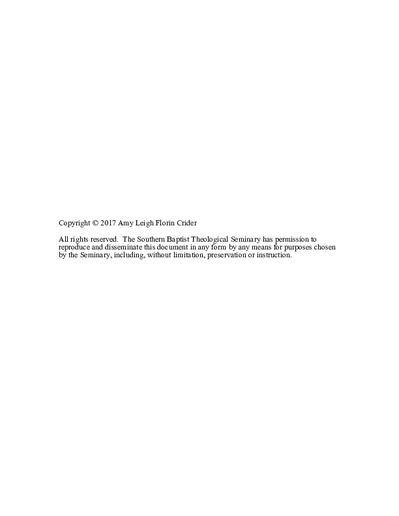| dc.description.abstract | Freshman composition instructors at Christian institutions face a disturbing predicament: competing pedagogies, administrative pressure to prove freshman composition’s merit, public clamoring for greater return on the college investment, technology redefining what “writing” is, a postmodern audience, and most concerning, the challenge to find an instructional model in a sea of pedagogies void of Christian ideology. The field of composition and rhetoric, unlike literature and other disciplines, does not have a pedagogy that successfully reconciles faith and scholarship. The purpose of this Doctor of Education thesis is to ignite a conversation among Christian composition faculty by introducing a prototype Christian freshman composition pedagogy built on a Christian theological, philosophical, and educational foundation rather than maintaining the common practice of overlaying Christian ideas on secular pedagogies.
The proposed writing pedagogy is beyond a perfunctory skills and service course because communication through writing is not only divinely modeled, it is essential for human flourishing. The structure of this Trinitarian writing theory is dually aimed at both the writing pedagogue, by providing the resources from which the teacher can develop an instructional pathway, and the student writer, by providing the resources from which the learner develops functional writing strategies encased within a biblically-grounded motivation for writing. Rooted in Kevin Vanhoozer’s Trinitarian Theology of Communication, this Christian writing pedagogical theory unfolds through a series of similarly-shaped triune-based structures that move from theological formation to methodological practice.
Chapter 1 argues that composition pedagogy is in crisis, not only at Christian colleges and universities, but secular institutions as well. Providing a context for the aforementioned crisis, chapter 2 historically traces composition instruction trends in America. While Christian scholars have proposed ways to apply faith and learning in other academic fields, no thoroughly Christian writing pedagogy has yet been created. Chapter 3 overviews secular strategies developed in response to the composition instruction crisis and those strategies’ lack of effectiveness. Chapter 4 serves to build the theological and philosophical foundation of a new instructional design theory. Chapters 5-9 provide a detailed progression of the new writing theory from its theological inception to the methodological and practical culmination as an act of worship for the student writer. Craig Bartholomew’s Tree of Knowledge provides the systematic method this project uses to rebuild composition theory; Kevin Vanhoozer's Trinitarian Theology of Communication model is the theological base that provides the key theoretical categories of the new writing pedagogy. Chapters 10-12 examine how the theory’s biblically-based distinctives translate to the classroom. | en_US |

